Current Events
Author: anonymDate: 2024-11-20 17:15:03
Escaped non-human primates caused chaos at South Carolina's Alpha Genesis research facility
Forty-three rhesus macaque monkeys escaped on Nov. 6.
Following the escape of 43 primates on November 6th, leaving four still at large, the Alpha Genesis Inc. facility in South Carolina faces intense investigation. Animal welfare organizations have highlighted the company's history of infractions and prior primate escapes; a congressional representative has requested an official inquiry into federal oversight; and local residents expressed concern about potential disease transmission. Adding to the situation, Alpha Genesis's founder and CEO, Gregory Westergaard, informed ABC News that the company is exploring whether the release was a deliberate act by an employee. This incident, involving a troop of young female rhesus macaques, coincides with the substantial expansion of the Alpha Genesis facility and exposes disruptions within the US medical research sector, echoing a science fiction narrative. A 2023 report, backed by the National Institutes of Health, warned of a crisis linked to the Chinese government that jeopardizes the nation's biomedical research.
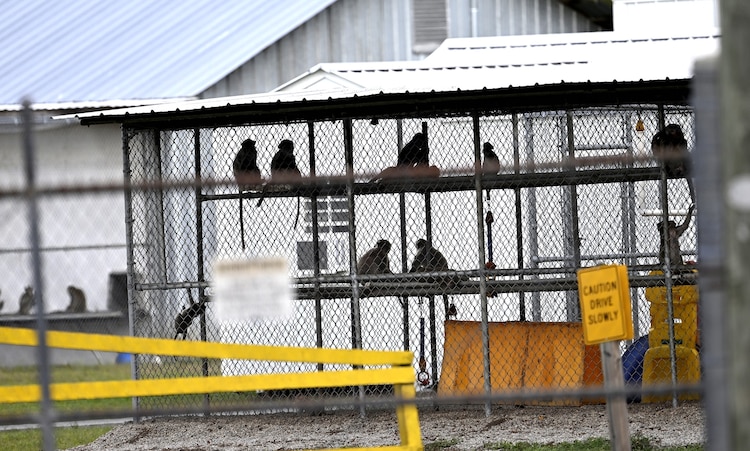
This incident has also sparked questions about the substantial increase—over 160% since 2021—in federal contracts awarded to the testing and breeding facility. According to USASpending.gov, a government website monitoring federal spending, the company received $19 million in federal contracts this year alone. "The substantial amount of money spent on primate testing is shocking," Rep. Nancy Mace, R-S.C., told ABC News. Mace's district includes Yemassee, Beaufort County, where the 6,701 primates housed at the extensive Alpha Genesis facility nearly triple the town's population. In an official letter to the NIH, which finances laboratory research, and the U.S. Department of Agriculture, which inspects and regulates breeding facilities, Mace voiced serious concerns regarding federal oversight of Alpha Genesis. Mace stated that the protracted efforts to recapture all primates endanger both the animals and her constituents.
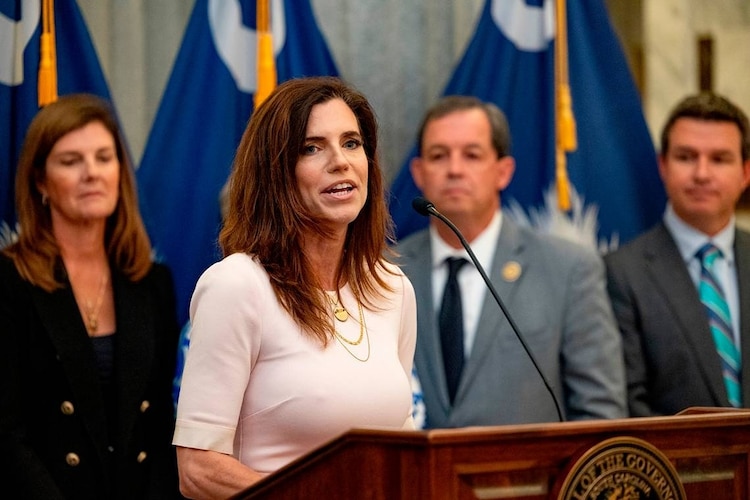
“Many constituents were worried about the health status of the escaped primates, whether they were unwell or had been subjected to testing,” Mace told ABC News. “Many were also concerned about the facility's role in breeding and testing.”
The escape highlights an 'issue of national security'
The event, dubbed "the great escape" by some residents, has brought to light the global crisis impacting the animal research sector, a crisis Alpha Genesis' Westergaard described as a "matter of national security." In 2020, the Chinese government, the world's leading breeder of research monkeys, prohibited the export of non-human primates (NHPs) to laboratories in the US and elsewhere, leading to a global shortage just as researchers were developing vaccines for the COVID-19 pandemic, according to a May 2023 report by the National Academy of Engineering and National Academy of Medicine. The report indicated that primates are invaluable in research due to their genetic, anatomical, physiological, and behavioral similarities to humans. However, China's export ban exacerbated the shortage and hindered NIH-funded research.
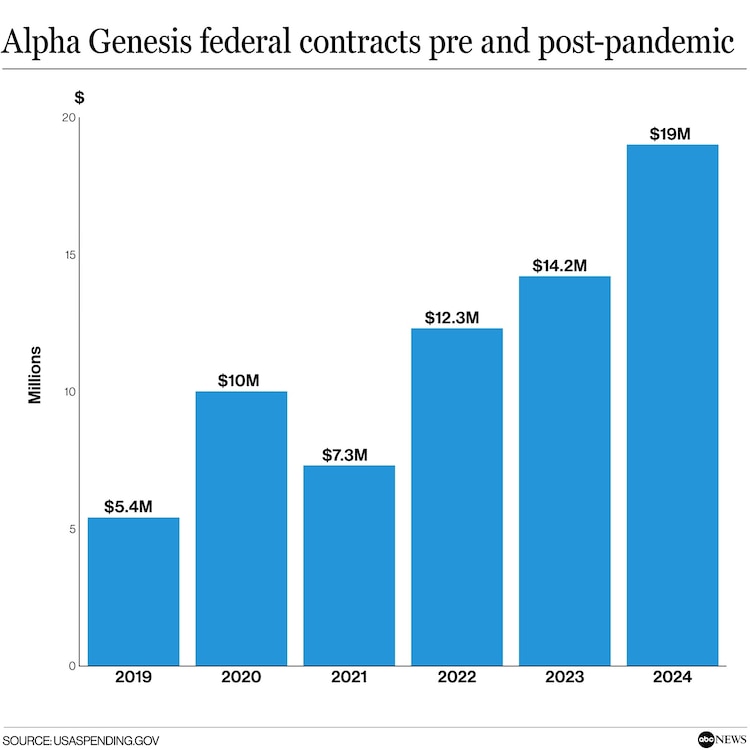
The report concluded that the United States must prioritize expanding its domestic primate breeding programs. "Relying on imports from other nations is unsustainable, and dependence on international sources compromises the security of the nation's biomedical research sector," the report cautioned. In 2021, the National Primate Research Centers couldn't fulfill two-thirds of researcher requests for rhesus macaques. "Researchers also face extended wait times for animals, and costs have increased by 10% to 200% per animal, depending on the species," the report stated.
What we know about Alpha Genesis' research
This crisis prompted Alpha Genesis to increase its domestic breeding of research primates. According to Rep. Mace, the company also manages the NIH's so-called "Monkey Island" on Morgan Island in Beaufort County, which houses another 3,300 primates.
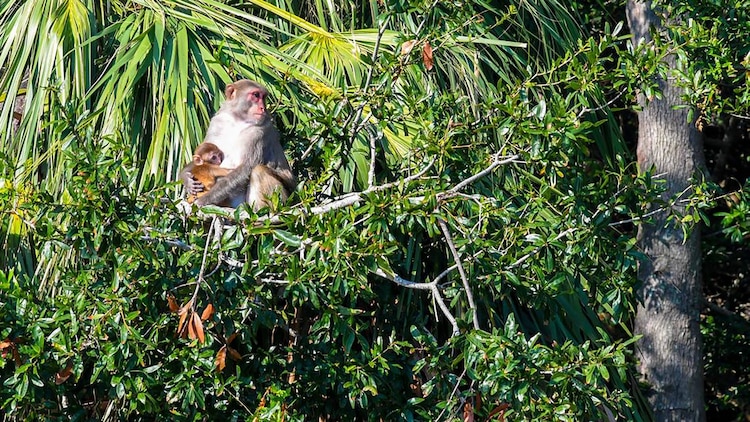
Westergaard told ABC News that Alpha Genesis employs 275 individuals, plus approximately 30 contractors. Besides breeding laboratory monkeys, Alpha Genesis provides researchers nationwide with biological materials, including serum, plasma, whole blood, and tissue samples from various research species, according to the company's website. The private company's researchers have contributed to the development of several therapeutic drugs and vaccines, including those for COVID-19.
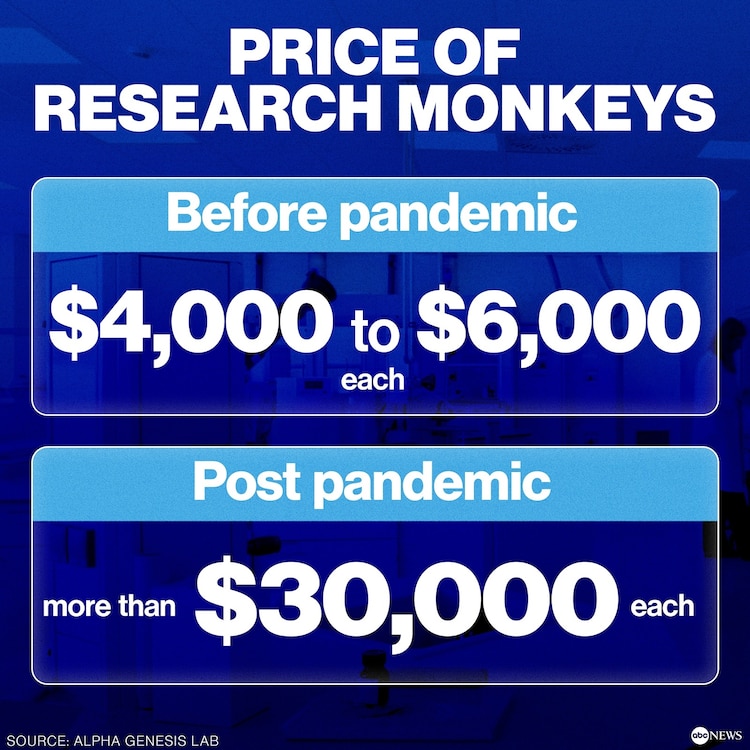
According to NIH online records provided to USASpending.gov, the crisis correlates with a surge in federal contracts awarded to Alpha Genesis, rising from $7.3 million in 2021 to $12.3 million in 2022, $14.2 million in 2023, and $19 million this year.
Primates are worth up to $30,000 each
“The cost of research monkeys has risen significantly since China banned exports,” Westergaard stated in an email to ABC News. “Before the ban, monkeys cost around $4,000–$6,000; after the ban, prices increased to $10,000–$30,000+ due to higher US animal-raising costs compared to China. Importantly, the shortage persists, and much US research is impossible due to animal unavailability regardless of cost.” Westergaard noted that some primate suppliers resort to illegally sourcing wild-caught monkeys from Cambodia, a practice Alpha Genesis avoids.

“It's also worth noting that the Chinese government aims for global dominance in medical research and the development of bioweapons targeting US citizens and our allies,” Westergaard stated. He added, “Alpha Genesis is a leading NHP supplier to the US market and has played a crucial role in addressing this gap. The alternative is to allow China to dominate medical advancements, severely harming our national security interests.”
Human error or intentional act?
When ABC News asked if Alpha Genesis's rapid expansion of breeding and testing operations might have contributed to the escape of 43 primates, Westergaard said the cause is under investigation, including the possibility of "human error" or a "deliberate act." "All current information suggests human error due to an employee failing to secure containment doors while performing routine cleaning and feeding," Westergaard stated in an email. "The enclosure was new and functional. We continue to investigate to determine if this was intentional." Westergaard mentioned that the employee's supervisor warned her of potential dismissal if no structural enclosure failure was found. Westergaard said the employee quit and hasn't returned. As of early Tuesday, four escaped primates remained at large, Westergaard stated. Two were captured on Monday. “The monkeys captured today are healthy, and the others remain in good condition,” Westergaard said Monday. “We believe the four remaining monkeys are likely together near our property or nearby.” Mace requested responses from NIH Director Monica Bertagnolli, USDA Deputy Administrator for Animal Care Sarah Helming, and Acting Director Axel Wolf of the NIH's Office of Laboratory Animal Welfare. She also pointed out that this wasn't the first incident at the research lab. Mace, who told ABC News she opposes animal testing, cited a September 2022 USDA inspection report on Alpha Genesis that noted six separate incidents of animals escaping enclosures between January and August 2022. Mace also mentioned escapes dating back to 2014, when over two dozen monkeys escaped, resulting in a USDA fine. The 2022 USDA inspection report, reviewed by ABC News, also stated that an infant monkey died after becoming entangled in gauze holding a water bottle; two primates were found dead in their enclosures with fingers trapped in cage structures; and one animal died from trauma while four others required veterinary care after being placed in incorrect enclosures and attacked by unfamiliar primates. Following the inspection, Alpha Genesis, according to the report, took corrective action to secure enclosures and made significant changes to avoid placing primates in wrong enclosures. The most recent USDA routine inspection of the Alpha Genesis lab took place on May 21, concluding, "No non-compliant items identified during this inspection," according to USDA online records. “This is also true of several other recent inspections,” Westergaard said. “For a facility of this size, that's quite remarkable.” Mace said she met Westergaard last week to discuss the escape and Alpha Genesis's efforts to recover the monkeys. “It was an interesting conversation,” Mace said. “He tried to portray the primates' situation favorably. I responded that their lives are good until they die from disease.” Asked about the conversation, Westergaard replied: “I spoke with the congresswoman last week, and she acknowledged our company's economic significance to the Low Country and, as a local business, offered her continued full support.”
Alternatives to testing primates
Angela Grimes, CEO of Born Free USA, an international wildlife conservation and animal protection organization, told ABC News that her group sent a letter to Alpha Genesis offering to relocate the escaped primates to its animal sanctuary in South Texas, where over 200 rhesus macaques reside, including some rescued from US research labs. She stated that an anonymous donor pledged $250,000 to help move the animals. "We hope these animals are transferred to the Born Free USA sanctuary in South Texas, where they can experience some of the freedom they recently tasted,” Grimes said.

Grimes said Alpha Genesis hasn't responded to her group's offer. The Born Free USA Primate Sanctuary, a 175-acre facility in Dilley, Texas, has been accredited since 2009 by the Global Federation of Animal Sanctuaries (GFAS), GFAS executive director Valerie Taylor told ABC News, adding that her group conducts thorough assessments and inspections of animal sanctuaries worldwide to ensure the highest animal care standards. Taylor said US animal sanctuaries undergo accreditation every three years and that her organization recently visited the Born Free USA sanctuary for reaccreditation. "We meet and surpass GFAS's highest standards," Grimes said. Grimes stated that the medical research industry should explore alternatives to subjecting primates to experimental testing of lethal diseases. "I understand human health is paramount, but I also consider viable alternatives that don't cause animal suffering and death,” Grimes said. Westergaard, however, argued that primate testing is essential. "There's no safe or effective way to progress from simpler model organisms like mice and rats to humans without using NHPs as an intermediary,” Westergaard said. “The therapeutics developed using NHPs as research models directly lead to lifesaving and life-extending treatments and cures for human diseases. Without NHPs as a research model, the world would still be grappling with widespread polio, smallpox wouldn't be eradicated, and HIV would remain a death sentence.”